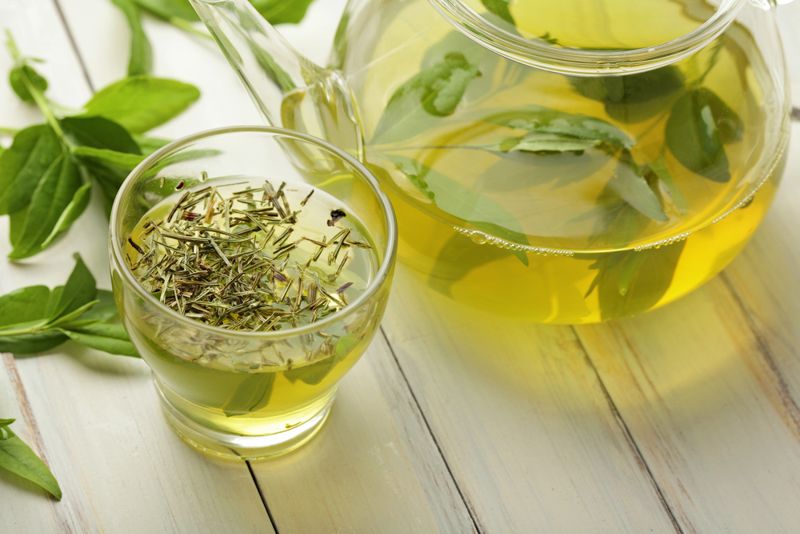Can Green Tea Increase Your Probabilities Of Surviving Breast Cancer?

Breast cancer is one of the most frightening diseases faced by the modern girls. And, it is the second top cause of cancer death in women, after lung cancer.
Scientists are continuing to look for new information to determine the causes of breast cancer also how to prevent and treat this disorder. Today we still don’t understand what causes breast cancer, but we do understand some of the risk factors.
In addition, we’ve come a long way in curing breast cancer although many women still die each year. Some of this research is very promising, such as research on green tea.
1 group of breast cancer victims who cause physicians a great area of concern are individuals that have a greater than average expression of the epidermal growth factor Her-2/neu. Her-2/neu is a growth factor that occasionally presents itself at a tumor. An over expression of this growth factor is a concern for breast cancer patients.
During regular testing of patients who have been recently diagnosed with breast cancer, physicians will establish the degree of Her-2/neu. If the level is elevated, this information is used to guide therapy. The degree of this growth factor is important because studies have demonstrated that patients with an over expression of Her-2/neu possess a higher likelihood of the own cancer metastasizing, and possess an overall reduced survival rate. The Her-2/neu is high in roughly 30 percent of breast cancer sufferers.
As part of this ongoing research to find effective treatments for breast cancer, scientists are looking seriously at the benefits of green tea, both on preventing cancer and healing it. Asian cultures have used green tea for its healing properties for centuries, and their overall rate of cancer is much lower than that of their Western world.
Tea comes from the Camellia sinensis plant. You will hear tea referred to as green, white or black. These differences don’t result from real distinct types of tea leaf, but instead from differences in the way in which the tea leaves have been processed. Green and white teas are not fermented during processing, however, black tea goes through such a processing.
Tea leaves contain catechins, part of the flavan-3-ol class of flavonoids, which are anti-oxidants. EGCG is one of the catechins in tea, also is a powerful anti-oxidant. Fermenting the tea leaves extends the catechins to additional compounds that are not as healthy as people in unfermented tea. So, the focus of research has been on green tea, due to its healthier type of anti-oxidants.
What’s So Great About Anti-Oxidants?
Throughout our body’s process of converting food to energy we create free radicals in our body. All these free radicals are harmful to our cells and DNA when we do not combat them. Left unchecked, free radicals contribute to speeding up the aging process and to causing diseases such as cancer, stroke, heart attack and stroke.
Anti-oxidants, though, can help us fight these free radicals, and a diet in anti-oxidants is linked with preventing cancer, heart disease and stroke. So, physicians recommend a diet high in anti-oxidants — which means eating lots of fresh fruits and vegetables and drinking green tea each day.
But, scientists also appear to be discovering that green tea may have the ability to boost the effectiveness in some cancer therapies. Several studies conducted on mice already diagnosed with cancer have proven that taking green tea along with the cancer therapies can increase the potency of the conventional therapy and might slow down the progression of cancer to other tissues. There is promising research; some of it directly linked to breast cancer treatment.
In this study, female mice with breast cancer Her-2/neu levels were rather high were treated with green tea along with their regular cancer therapy. Mice that ingested the green tea showed a diminished growth in their tumors along with a slower progression of the cancer than those who had been treated using the exact same medication with green tea as an adjunct treatment. *
Researchers who discovered these results also feel that when green tea may inhibit the development of tumors in patients already diagnosed with cancer, it might also be effective in preventing cancerous cells by growing and forming in the first place. This contrasts with other study that indicates that green tea might be significant in preventing cancer. Additionally, it will help explain why Asian civilizations have such a very low cancer incidence when compared with the Western world.
This is very promising news for a group of breast cancer sufferers who’ve traditionally had a significantly lower success rate compared to many others with prostate cancer. If we can slow down the rate of cancer development in people with over term of Her-2/neu to approximately the same speed as other breast cancer patients, then we may be a lot more capable of treating those patients.
Far more research is needed in the region of breast cancer prevention and therapy. In addition, scientists will probably be spending more time analyzing the benefits of green tea in cancer prevention and treatment. However, it appears evident that green tea has a place at the prevention and therapy of several ailments, including cancer.
Even though there is more research to be done, there’s not any downside to adding green tea to your diet to help prevent illness or to improve your health if it is already failing. Researchers have found no dangers involved in drinking green tea. It has no side effects, and is a healthful alternative to coffee because of its high level of anti-oxidants and as it’s quite a bit lower in caffeine than coffee. Thus, get a jump start on your anti-oxidants by drinking green tea!
